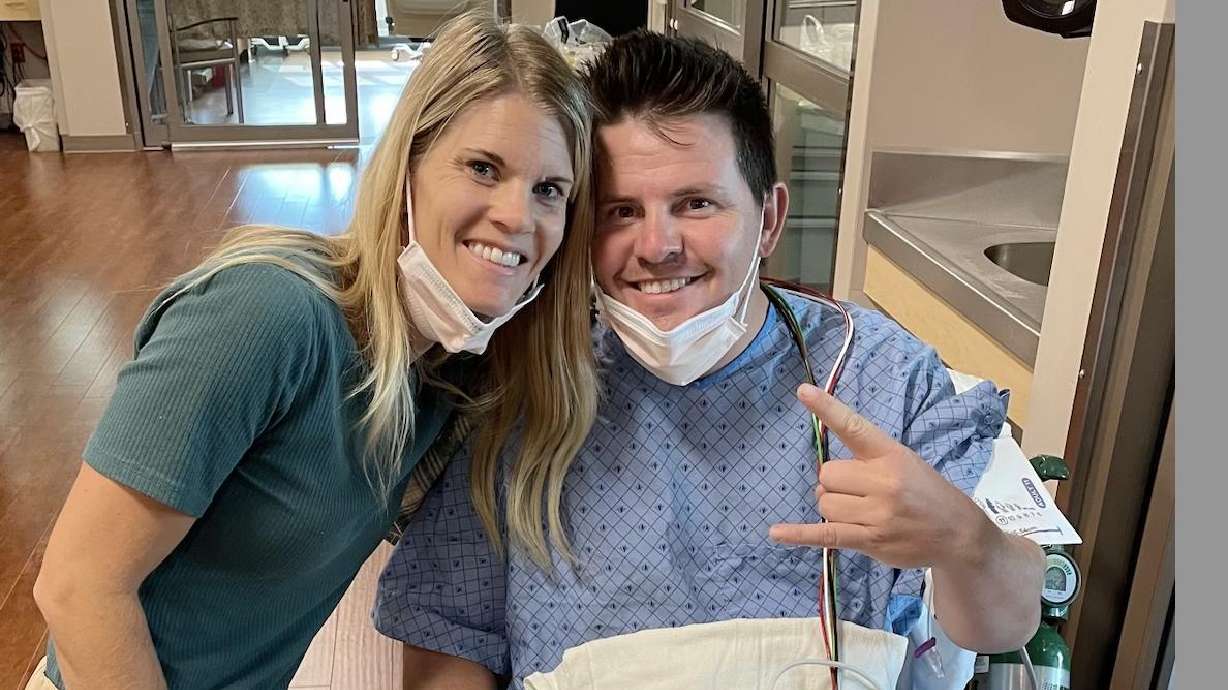HEALTH
Is forcing the homeless into treatment the answer?
Dec 2, 2022, 6:30 PM

President John F. Kennedy signs the Mental Retardation Facilities and Community Mental Health Center Construction Act. Looking on (L-R): Representative Leo W. O’Brien of New York; Representative Edith Green of Oregon; Representative Albert Thomas of Texas; Senator Ralph Yarborough of Texas. Cabinet Room, White House, Washington, D.C. Cecil W. Stoughton | JFK Library
(L-R)
SALT LAKE CITY — America’s largest city is taking a page from US history and moving back to forced or involuntary hospitalization of homeless people.
A BYU psychologist weighs addressing the growing homeless population in Utah against the ethics of patient autonomy.
New York City Mayor Eric Adams announced Tuesday that officials will begin hospitalizing more homeless people by involuntarily providing care to those deemed to be in “psychiatric crisis” as reported by NPR.
“For too long, there has been a gray area where policy, law, and accountability have not been clear, and this has allowed people in need to slip through the cracks,” Adams said. “This culture of uncertainty has led to untold suffering and deep frustration. It cannot continue.”
Tom Golightly, associate clinical director for BYU Counseling and Psychological Services, discusses whether NYC’s approach is the best way to handle the problem of homelessness in US cities.
He joins KSL@Night hosts Leah Murray, associate professor of Political Science at Weber State University, and defense attorney and former prosecutor Greg Skordas.
Is forced hospitalization the right path forward for homeless?
“Is this how we handle our mental health/homeless crisis in our nation’s cities?” Murray asked.
“There’s no denying that there’s a large proportion of the homeless population with untreated diagnosable conditions, right?” Golightly said. “There’s a huge gap in being able to provide those services [which] are very costly and time intensive. . . as a clinician, we really value from an ethical standpoint, autonomy of patients and being able to opt-in to services.”
US presidents and the mentally ill
Golightly referred to The Community Mental Health Act of 1963 (CMHA), signed by President John F. Kennedy, which provided federal funding for community mental-health centers and research facilities in the United States.
The CMHA proved to be a mixed success. Many patients, formerly warehoused in institutions, were released into communities. But not all communities had the facilities or expertise to deal with them. In many cases, patients wound up in adult homes or with their families or homeless in large cities.
In 1980, President Jimmy Carter signed the Mental Health Systems Act to improve on Kennedy’s dream.
But by 1981, President Reagan repealed Carter’s legislation with the Omnibus Budget Reconciliation Act. This moved the responsibility of mentally ill patients back to the States. The legislation created block grants for states, but federal spending on mental illness declined.
Did the Emptying of Mental Hospitals Contribute to Homelessness?
Does forced hospitalization mean patients can never leave?
“As we look at maybe forcing some of these people into hospitalization . . . were kind of right in the line back into those forced hospitalizations in really tough conditions,” Golightly said.
“I might be wrong,” Skordas said, “but it seems like in Utah right now that the [Utah] State Hospital, as far as I know, is the only mental health institution that is locked down, that you’re not able to just walk out of. . . I can see having forced institution. But you can’t have a guard at the gate, can you? I mean people can always walk out.”
Most psychologists are going to adhere to the idea of opting-in to treatment, Golightly said.
As far as locked-down facilities, he said, “Under emergency situations, you can hold someone that’s in danger to themselves or someone else for 72 hours . . . But that is always temporary.”
Training cops to help the homeless
NYC Mayor Adams faces backlash for move to involuntarily hospitalize homeless people
Murray questioned Adams statement that police officers, emergency medical workers and first responders could be sufficiently trained to manage mentally ill homeless people who resist involuntary hospitalization.
“Doesn’t sound like it’s a clinical psychologist they’re sending out,” she said, “This just sounds like a recipe for disaster.”
“I do have some reservations with non-medical professionals making medical decisions,” Golightly said.
“All psychologists that are licensed certainly go through several years of graduate school to be able to assess these things,” he added.
“In an hour interview, how to do that curbside, by a subway, those types of things in a very quick setting and make a snap decision might prove to be pretty difficult,” Golightly said.
Related reading on KSL:
Utah official says better coordination could help with homelessness











